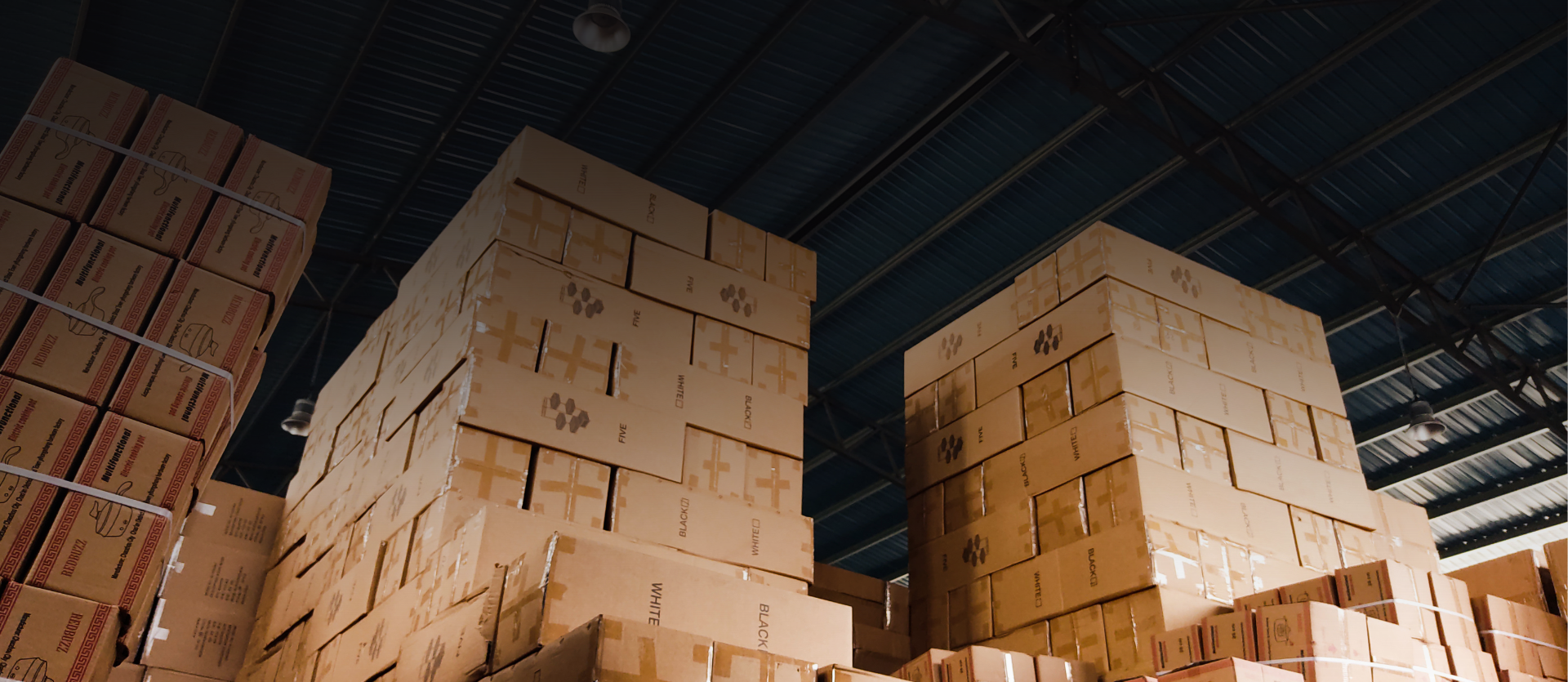Understanding customs and excise manufacturing and storage warehouses in South Africa
Is your company looking to start up or expand operations in South Africa? You might be involved in the production of excise goods, or need to store excise goods. There might be a need to store goods with a duty tax or VAT (Value Added Tax) liability temporarily in order to delay significant cash outlays upfront. Maybe you need storage for rebated goods or space to process or work on bonded goods. In all these scenarios, the solution is a Customs and Excise Warehouse.
As such, if any of the above apply to your company, then it will be worth your while to keep reading to gain an understanding of how excise manufacturing and storage warehouses work in South Africa.
Customs and Excise warehouse – what is it?
A Customs and Excise warehouse can be defined as a secure location where, under certain provisions as specified in the South African Customs and Excise Act, imported dutiable goods can be stored, manipulated, or undergo manufacturing without the payment of duty.
To be recognised as a Customs and Excise warehouse, the company needs to cordon off a designated section within its property, ensure this meets with regulations, and that it is then SARS-registered. This section is fully accessible to South African customs officials who have authority at all times to monitor goods that enter and exit the premises. The benefit is that there are no storage fees payable, as products are kept for a set time at the company’s risk and expense.
There are different types of Customs and Excise warehouses. The nature of the products in question, and whether dutiable products are being imported or manufactured will determine which type of warehouse a company will need.
Customs storage warehouse types
These are properties that are licensed to store imports intended for the local market, use in local production, or purely for export. These include duty and tax-free shops as nil tax was paid on the products they sell.
At the time of accessing the imports, whether for local re-sale or use in local production, the importer needs to have an ex-warehouse declaration processed before their removal. At this point, outstanding import duties and VAT (Value Added Tax) must be paid. Where products are intended solely for export, nil taxes are payable, but a declaration must still be processed.
The products that will be kept in storage, as well as their purpose, will determine for which type of customs storage warehouse the importer needs to register.
Standard storage warehouse (Customs OS warehouse)
Storage warehouses that are used to store dutiable imported goods. Storage warehouses can be used as one of the following:
- Bond store– for storage of uncleared imports, or imports awaiting export.
- Rebate store– for use by a registered rebate user to safe-keep products granted a rebate (non-payment) of import tax, on the proviso that the stored items are used in production as specified in the South African rebate schedule.
- Stockist bond store– for use as a distribution centre with the intention of safe keeping bonded items on behalf of numerous clients. This warehouse type works well where the bonded user has limited space and a 3rd party assists with distribution.
Special Storage Warehouse (Customs SOS warehouse)
These are licensed to store goods for specific or special circumstances such as:
- Duty-free products for export in terms of Section 21(3) of the South African Customs Act including consolidation and deconsolidation.
- Dutiable imported products, which include second-hand motor vehicles intended for export. Note that police clearance is required by an SOS used for the storage of motor vehicles.
- Imported products for the operation of a tax and duty-free shop.
Customs Controlled Area Enterprises
To bolster national economic growth and export, the Minister of Trade and Industry, as well as South African customs, approved nine Special Economic Zones (SEZ) in South Africa. South African customs has granted these zones preferential regulations and certain support measures were implemented to attract local and international investments.
SEZs, or specific location/s within them, may be declared a CCA (Customs Controlled Area). Businesses falling within a CCA are called CCA Enterprises. These need to meet specific requirements to register and maintain storage warehouses.
The nine SEZs are as follows:
- Saldanha Bay, Western Cape– A services complex for marine repair engineering, logistics, oil and gas. It supports a range of companies that work in the oil and gas fields off Sub-Saharan Africa.
- Coega, Eastern Cape– Situated in the Nelson Mandela Bay Metropolitan Municipality, this zone attracts companies involved in energy, metals logistics, agro-processing, aquaculture, and business process automotive industries.
- East London IDZ (Industrial Development Zone), Eastern Cape – This industrial estate focuses on the automotive, agro-processing and aquaculture sectors, and is recognised for the customised solutions it offers companies.
- Maluti-A-Phofung SEZ, Free State– This zone is strategically situated in the middle of the important Durban-Johannesburg route in the town of Harrismith. In addition to logistics for road and rail freight transfer, it provides access to Durban’s port.
- Musina-Makhado SEZ, Limpopo – This zone is found near the South African-Zimbabwe border, along the North-South National Highway (N1) route. It passes into the Southern African Development Community (SADC).
- Dube TradePort, KwaZulu Natal– Situated 30 km north of the city of Durban, this zone focuses on fashion, automotive and electronics manufacturing.
- Nkomazi SEZ, Mpumalanga– This zone is a leader within South Africa for agro-processing and logistics services.
- Richards Bay IDZ, KwaZulu Natal – This industrial park is located along the national highway (N2) connecting the major Durban and Richards Bay ports.
- NW Development Corp, Platinum Valley SEZ, North West – This industrial estate is busy developing and can be found near the town of Mogwase in the Bojanala Platinum District of South Africa’s North West Province.
Excise manufacturing warehouses
Excise tax is incurred on products listed as “luxury goods” or those considered harmful to the consumer or the environment. It must be paid to SARS (the South African Revenue Service) when goods are consumed locally. The tax can be waived when goods are consumed outside of the SACU (Southern African Customs Union).
SARS monitors the declaration of production of excisable goods as well as the correct payment of the tax, but the manufacturer is responsible for doing both. Therefore, should a company wish to produce excisable goods, it is a requirement that the company register as an excise manufacturing warehouse before starting production. What excise manufacturing warehouse registration the company needs will depend on what commodity is manufactured.
Manufacturing warehouse (Customs VM warehouse)
Each manufactured good adheres to strict and unique regulations. As such, manufacturing warehouse registration is specific to what excise is incurred by the manufactured good. In certain instances, as with the production of spirits, the manufacturer should register as a primary or secondary manufacturing warehouse.
- Primary manufacturing warehouse (VMP)– Where non-excisable raw materials are used to manufacture an excisable base product not intended for consumption.
- Secondary manufacturing warehouse(VMS) – Where excisable raw materials are used to manufacture an excisable product ready for consumption. (For example, blending and/or packing bulk spirits into an end product.)
Special manufacturing warehouse (Customs SVM warehouse)
In certain situations, SARS may require the registration of a special manufacturing warehouse. The situations vary and depend on the type of excise being produced and on conditions imposed by the South African customs commissioner.
There are definite perks to operating a Customs and Excise warehouse. To enjoy these benefits, however, both management of what enters and exits the premises as well as clear recordkeeping are essential. It would thus be worth considering EDI (Electronic Data Interchange) registration to manage declarations.
Are you considering registration of a Customs and Excise warehouse in South Africa for your company?
Let us handle the paperwork to ease the process 9while you focus on the big picture. For further information on applying for your storage warehouse or excise manufacturing warehouse, contact our consultants today.






